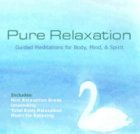Seven Activities to Keep Your Brain Sharp
by www.SixWise.com
Contrary to popular belief, your mind does not have to slow
down just because you get older. Instead, you can keep your
brain functioning at its highest level just by keeping it
in shape, just as your muscles improve when you work them
out.
|

Experts agree that physical exercise is one of the
best things you can do to keep your mind strong.
|
"Working out" your brain is only slightly different
from working out the rest of your body. If anything, it's
easier because such a wide array of activities is beneficial.
If you are interested in keeping your brain sharp, no matter
what your age, here are the key activities to indulge in.
1. Exercise
Physical activity does not just benefit your waist size.
It also produces beneficial changes in your brain, including:
-
Encouraging the growth of new cells by increasing oxygen
flow to your brain
-
Boosting growth factors, such as brain-derived neurotrophic
factor, which helps new nerve cells to survive
-
Increasing neurotransmitters in your brain that play
a role in cognition
"I would absolutely recommend people exercise for the
mental benefits -- especially the elderly," says Henriette
van Praag, a staff scientist at the Salk Institute for Biological
Studies in a Los Angeles Times article. "People don't
care about whether they're a size 4 or a size 6 as they get
older. But they do care where their car keys are and whether
they'll have the ability to play their card games and enjoy
life."
|

Getting together with friends for a game of cards will
give your brain a healthy challenge.
|
2. Challenge Your Mind
As the saying goes, "Use it or lose it." It's thought
that some of the forgetfulness and loss of mental acuity that
comes along with aging is caused, at least in part, by non-use.
In fact, another study in The New England Journal of Medicine
found that seniors who participated in mentally challenging
activities about once a week for a 20-year period reduced
the risk of dementia by 7 percent. Those who engaged in these
activities more often reduced their risk even more -- by 63
percent!
To keep your mind on its toes, try out a new hobby that will
get you thinking, such as:
-
Learning how to play a musical instrument
-
Playing Sudoku,
crossword puzzles, cards or board
games
-
Learning a foreign language
-
Reading
-
Creative writing
-
Woodworking
3. Eat Healthy Meals and Snacks
What you eat has a direct impact on your brain function,
and if you've ever indulged in a mid-afternoon junk-food binge,
then felt like your head was stuck in a fog for the rest of
the day, you understand what we're saying. The best foods
for your brain include:
-
Antioxidants from fruits and veggies. One study by researchers
at the University of California at Irvine found that beagles
fed a high-antioxidant died had improved cognitive skills.
And, rats fed strawberries
and blueberries have been shown to enjoy improved
coordination, concentration and short-term memory.
-
Fish. Coldwater fish, such as salmon, tuna, mackerel,
and herring are rich in omega-3 fatty acids that have
been found to be very important for brain function (just
be careful to eat this in moderation due to potential
contamination
with mercury).
Meanwhile, you definitely want to avoid trans
fats for your brain health. These dangerous fats have
been linked to a host of mental problems, including dyslexia,
attention deficit hyperactivity disorder (ADHD) and autism.
|
When Your Brain Needs to Relax:
Quiet Your Mind With Guided Meditation
 The
Pure Relaxation CD is an essential tool for anyone looking
for an excellent way to relax and quiet a racing mind. The
Pure Relaxation CD is an essential tool for anyone looking
for an excellent way to relax and quiet a racing mind.
The guided meditations in Pure Relaxation will calm
your mind, soothe your emotions and create a state of
deep relaxation in your body, giving you permission
to live in a more relaxed way.
Learn
More About the
Pure Relaxation CD Now!
|
4. Listen to Some Music
A study published in the journal Heart & Lung found that
people
who listened to music while they exercised performed more
than twice as well on a verbal fluency test than people who
listened to no music. The test was designed to challenge the
part of the brain that deals with planning and abstract thought.
5. Have a Drink?
While too much alcohol can cause you serious health problems,
a study in the New England Journal of Medicine found that
one-half to one drink a day may be beneficial for your brain.
In fact, in the study of over 12,000 elderly women, those
who drank light
to moderate amounts of alcohol daily had a 20 percent
lower risk of having problems with their mental abilities
later in life than women who did not drink at all.
6. Sleep Enough
During sleep,
your mental energy is restored. Don't get enough of it and
important skills like planning, problem solving, learning,
concentration, memory and alertness will all become more difficult.
Further, the less sleep you get, the worse off you'll be.
"If you have been awake for 21 hours straight, your
abilities are equivalent to someone who is legally drunk,"
says Sean Drummond from the University of California, San
Diego in New Scientist.
However, just a few nights of not enough sleep can produce
similar effects.
7. Meditate
Meditation
has been found to produce both short-term and permanent changes
in the brain. In fact, researchers at Harvard, Yale and the
Massachusetts Institute of Technology found that meditation
increases brain size and may help slow some aspects of cognitive
aging.
Recommended Reading
Some
Very Fun Exercises for Your Brain ... With an Amazing Little
Test at the End
Is
Fish Really 'Brain Food?'
Sources
The
New England Journal of Medicine January 20, 2005 Volume 352:245-253
Statesmen.com
New
Scientist May 28, 2005
Harvard
University Gazette